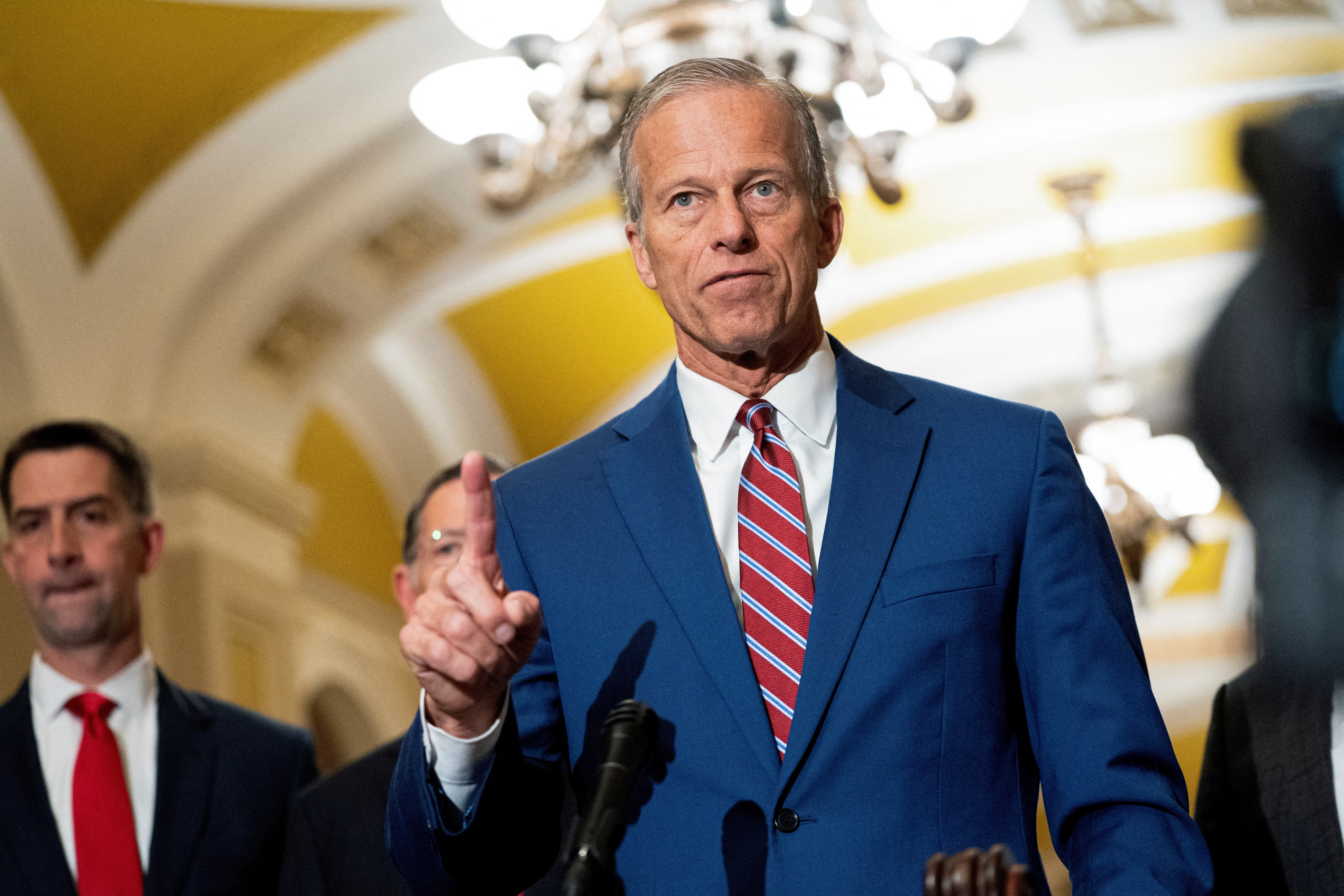Senate Passes Trump’s Massive Budget Bill
In a narrow and contentious vote, the Senate approved President Trump’s budget reconciliation bill, a sweeping piece of legislation that threatens to inflict significant harm on the most vulnerable populations in America. The bill passed 51 to 50, with Vice President JD Vance casting the tie-breaking vote. This legislation, touted as a victory for the GOP, will extend tax cuts while slashing billions from healthcare and nutrition programs, effectively prioritizing the wealthy over the needs of everyday Americans.
GOP Leaders Rally Support Amid Controversy
Senate Majority Leader John Thune led the charge to secure votes, meeting with GOP holdouts in a desperate attempt to sway their opinions. Senators Thom Tillis, Rand Paul, and Susan Collins stood firm against the bill, aligning themselves with the growing concern over its implications for the deficit and healthcare access. However, this dissent was not enough to derail the legislation, which has been characterized as a “big, beautiful bill” by its proponents, despite its potentially devastating consequences.

US Senate may work on Russia sanctions bill this month | Reuters
Consequences for Millions of Americans
The Congressional Budget Office (CBO) estimates that the bill will increase federal deficits by nearly $3.3 trillion over the next decade. This figure raises alarming questions about the sustainability of programs like Medicaid, which will face substantial cuts. According to the CBO"s analysis, millions could lose their health coverage, exacerbating the healthcare crisis in a country that already struggles with access and affordability. These cuts reflect a dangerous trend in prioritizing tax benefits for the wealthy over critical social safety nets for the most vulnerable.
Democratic Resistance and Accountability
Democrats in the Senate employed every tool at their disposal to resist this legislation, engaging in a “vote-a-rama” that forced senators to publicly record their stances on numerous amendments aimed at rolling back harmful provisions. Despite their efforts, including a proposal to expand rural hospital funding, GOP leaders remained steadfast in their commitment to the bill. Senate Minority Leader Chuck Schumer condemned the legislation, labeling it a betrayal of the American people, and emphasizing that voters will remember the actions of their representatives come election time.

Trump"s big bill passes Senate; House battle is next: Live ...
The House Faces a Critical Decision
As the bill heads back to the House for consideration, the urgency is palpable. Trump has pushed for a swift approval before the July 4th holiday, but the House must navigate the treacherous waters of public opinion and the potential backlash from constituents who depend on Medicaid and other vital programs. With the Senate’s changes now in play, the path forward is fraught with political peril, especially for those representatives who may feel the heat from their constituents regarding the drastic cuts to essential services.
This budget bill not only represents a critical moment in Trump’s second term but also serves as a reflection of the stark ideological divide in America today. As the GOP continues to prioritize tax cuts and defense spending over the welfare of its citizens, the future of healthcare and social services hangs in the balance, demanding relentless scrutiny and action from all corners of the political spectrum.



![[Video] Gunfire between Iraqi security forces and Sadr militias in Baghdad](/_next/image?url=%2Fapi%2Fimage%2Fthumbnails%2Fthumbnail-1768343508874-4redb-thumbnail.jpg&w=3840&q=75)
